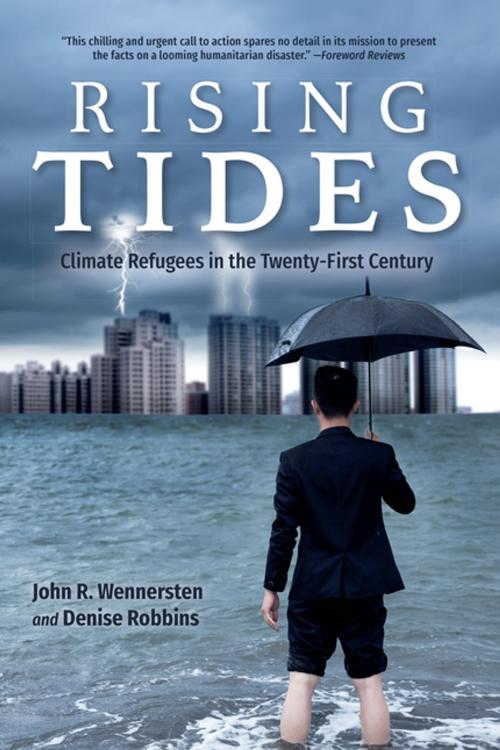Rising Tides
Climate Refugees in the Twenty-First Century
Nonfiction, Science & Nature, Nature, Environment, Weather, Science, Earth Sciences| Author: | Denise Robbins, John R. Wennersten | ISBN: | 9780253025920 |
| Publisher: | Indiana University Press | Publication: | June 12, 2017 |
| Imprint: | Indiana University Press | Language: | English |
| Author: | Denise Robbins, John R. Wennersten |
| ISBN: | 9780253025920 |
| Publisher: | Indiana University Press |
| Publication: | June 12, 2017 |
| Imprint: | Indiana University Press |
| Language: | English |
Global climate change and global refugee crises will soon become inextricably interlinked. A new tsunami of climate refugees flows across the earth. We are now at the moment of truth."
Climate change is with us and we need to think about the next big disturbing idea – the potentially disastrous consequences of massive numbers of environmental refugees at large on the planet. In 2020 the United Nations projects that we will have 50 million environmental refugees mostly from Africa, Asia, and Latin America. How will people be relocated and settled? Is it possible to offer environmental refugees temporary or permanent asylum? Will these refugees have any collective rights in the new areas they inhabit? And lastly, who will pay the costs of all the affected countries during the process of resettlement? Environmental refugees are a problem beyond the scope of a single country or agency."John R. Wennersten and Denise Robbins, from the book
Global climate change and global refugee crises will soon become inextricably interlinked. A new tsunami of climate refugees flows across the earth. We are now at the moment of truth."
Climate change is with us and we need to think about the next big disturbing idea – the potentially disastrous consequences of massive numbers of environmental refugees at large on the planet. In 2020 the United Nations projects that we will have 50 million environmental refugees mostly from Africa, Asia, and Latin America. How will people be relocated and settled? Is it possible to offer environmental refugees temporary or permanent asylum? Will these refugees have any collective rights in the new areas they inhabit? And lastly, who will pay the costs of all the affected countries during the process of resettlement? Environmental refugees are a problem beyond the scope of a single country or agency."John R. Wennersten and Denise Robbins, from the book















